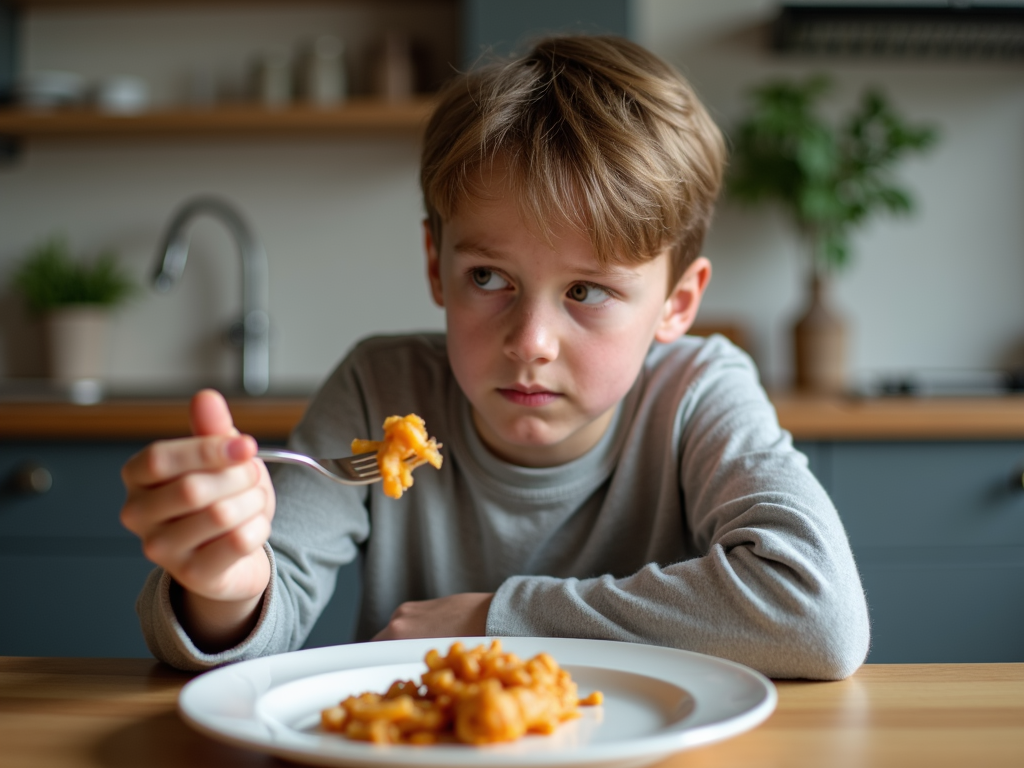Food Protein-Induced Enterocolitis Syndrome, or FPIES, affects more than just the body. It takes a toll on mental health too. This article explores the psychological impact of FPIES on individuals and their families, offering practical ways to cope.
What is FPIES?
FPIES is a food allergy that hits the gut hard. Unlike most allergies with instant reactions, FPIES symptoms show up hours later—usually 2-6 hours after eating a trigger food. Think vomiting, diarrhea, and extreme tiredness. In severe cases, it can even lead to shock. Common culprits include milk, soy, rice, and oats, but any food could set it off. Doctors diagnose it through symptoms and food trials, since there’s no simple test.

Psychological Impact on Individuals
Living with FPIES can feel like walking on eggshells. The fear of a reaction turns mealtimes into a source of dread. You might avoid new foods—or even familiar ones—worried they’ll make you sick. This shrinks your diet, leaving you hungry for variety. For kids, it’s missing out on cake at a friend’s party. For adults, it’s skipping dinners out. Over time, this can lead to loneliness.
The delay in symptoms adds stress. Was it the rice? The milk? You’re left guessing, which keeps you on edge.

Psychological Impact on Caregivers
If you’re a parent or caregiver, FPIES can weigh heavy. You’re the gatekeeper, scanning every label and cooking every meal. One slip-up could mean a trip to the ER. That pressure never lets up. You might lie awake, replaying the day, wondering if you missed something. If a reaction happens, guilt can hit hard—even if you did everything right. It’s a lot to carry, and it can strain your relationships or peace of mind.

Coping Strategies for Individuals
You don’t have to let FPIES rule your life. Here’s how to take back some control:
- Learn the Basics: Know your triggers and symptoms. It cuts down on the fear of the unknown.
- Find Your People: Join a support group. Talking to others who get it can lift a huge weight.
- Talk It Out: A therapist can help you tackle anxiety. Techniques like rethinking negative thoughts work well.
- Stay Calm: Try breathing exercises or meditation. Even five minutes can ease the tension.

Coping Strategies for Caregivers
Caregivers need a break too. Here’s what helps:
- Take Time for You: Step away for a walk or a hobby. You can’t pour from an empty cup.
- Ask for Backup: Let friends or family pitch in with meals or support. You’re not alone in this.
- Get Smart: Learn all you can about FPIES. Confidence comes with knowledge.
- Connect: Other caregivers know your struggle. A group chat or meetup can be a lifeline.

Coping with Acute FPIES in Daily Life
Acute FPIES reactions—those sudden, intense episodes—disrupt everything. Eating out? Risky. Restaurants might sneak in hidden ingredients. Traveling? You’re packing snacks and maybe a stovetop. Social events like birthdays or holidays can feel isolating when everyone’s eating what you can’t. At school, kids need teachers to watch out. At work, adults dodge cafeteria traps. Planning ahead—calling ahead or bringing your own food—keeps you in the game.

Medical Side of FPIES
Avoiding trigger foods is the main defense against FPIES. If a reaction hits, fluids help—sometimes in a hospital. An allergist and dietitian are your teammates, figuring out safe foods and checking if you’ve outgrown it. Food challenges, done safely with a doctor, test that hope. It’s a slow process, but it keeps you healthy while you tackle the mental side.

Looking Ahead
Here’s the good news: many kids outgrow FPIES by age 3-5. Some don’t, though, and it sticks around longer. Either way, support matters. Regular doctor visits keep you on track. Friends, family, or support groups keep you grounded. With time, you can find a rhythm that works.
Wrapping Up
FPIES isn’t just a stomach issue—it’s a mind game too. Understanding the psychological impact of FPIES helps you face it head-on. Whether you’re the one with acute FPIES or the caregiver watching out, there’s hope. Use these strategies, lean on support, and you’ll find your way through.
Discuss Here